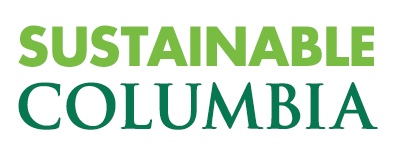Business Travel
Columbia commits to reduce University-related business travel.
Transportation Commitment Areas
Overview
Columbia relies on regional, national, and global travel and experience to carry out its research and educational missions. Columbia seeks to strike a balance between necessary travel and sustainable solutions for travel alternatives for students, faculty, and staff. As a result of COVID-19 beginning in 2020, the rise of remote work and study has resulted in a drastic reduction of Scope 3 commuting emissions to the University. Business travel impact has decreased with fewer Columbians traveling by plane and more people becoming accustomed to communicating virtually. These are lessons Columbia can apply going forward — trends that do not have to remain in 2020, even after the worst of the pandemic subsides.
Provide and market campus resources that allow affiliates to avoid travel if possible.
- Continue to expand videoconferencing capabilities and awareness about these resources.
- Enable affiliates to learn about and use Information Technology (IT) services, such as videoconferencing, that help avoid travel. Organize kick-off meeting by 2021.
- Leverage Columbia’s purchasing power to steer affiliates to travel services that have already adopted sustainable practices (car rentals, airlines, and hotel chains). Begin conversations in 2021 to inform future practices.
- Increase awareness among University affiliates on the impact of air travel, including Columbia-related and individual impacts, as well as communicating the low-carbon travel alternatives like rail and bus travel. Develop awareness and communications campaign by Fall 2021.
- Set travel reduction goals within the University in alignment with science-based targets. Incorporate this into the Scope 3 screening methodology.
Offset emissions from University sponsored business travel.
- After all other actions have been taken to reduce or avoid non-essential business travel, offset any remaining emissions annually. Form a sub-team by Fall 2021 to evaluate and enhance offset criteria and determine offsets for University consideration. Align with faculty to calculate greenhouse gas (GHG) savings and consider local community benefit and additionality.
Columbia’s first sustainability plan called for the tracking and reporting of business-travel emissions data, an indirect Scope 3 emissions source. Pre-pandemic, emissions from business travel accounted for 15% of the Morningside+ total emissions. The availability of this data, collected through a biennial University-wide survey, has allowed Columbia to better understand the impact of this travel and ultimately implement solutions such as enhanced videoconferencing “packages.” The University has recently deployed a travel booking tool that will allow for more centralized and accurate data collection moving forward.
CUIMC is aligned with all stated goals and strategies in this section.
LDEO is aligned with all stated goals and strategies in this section.
